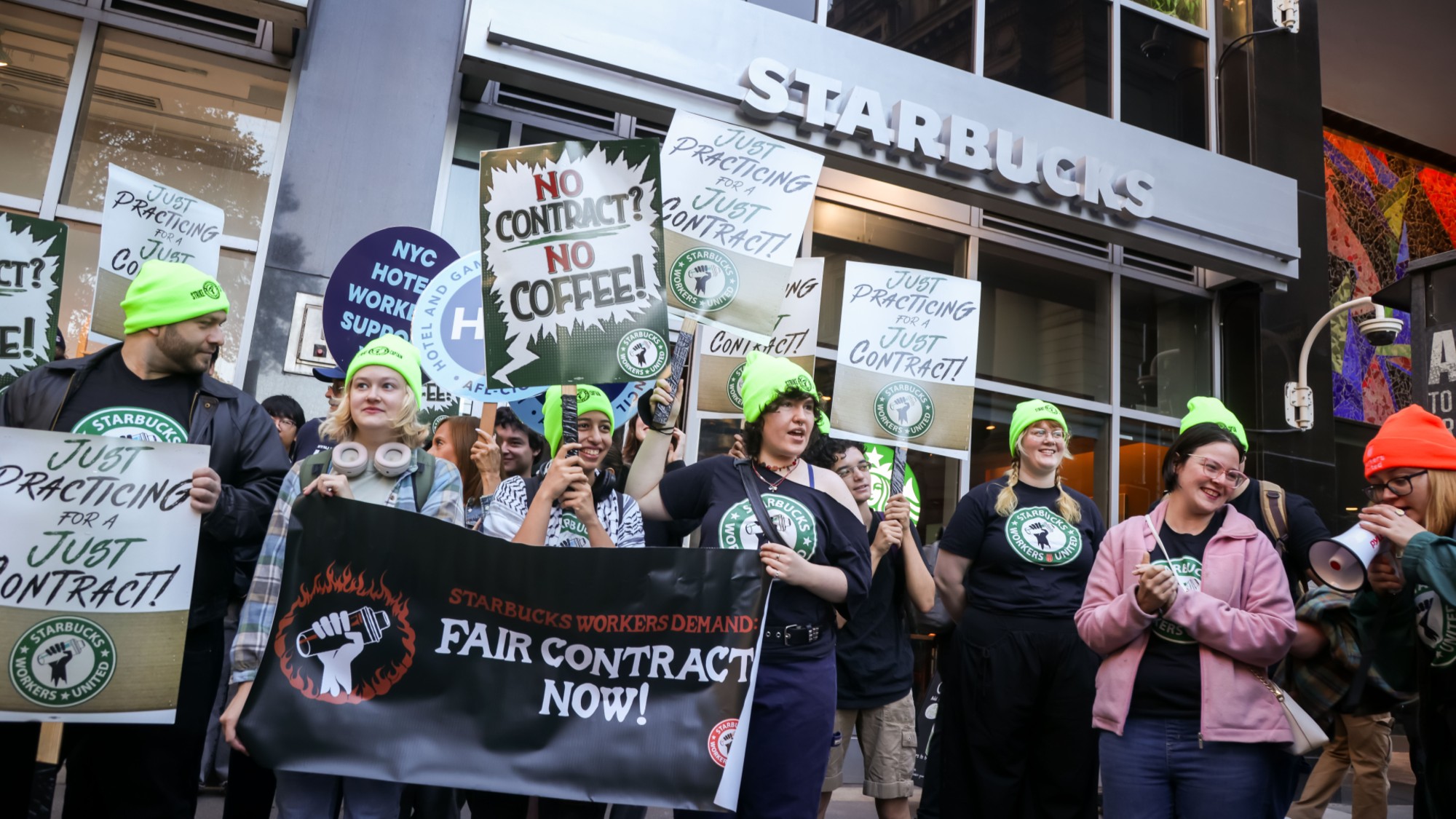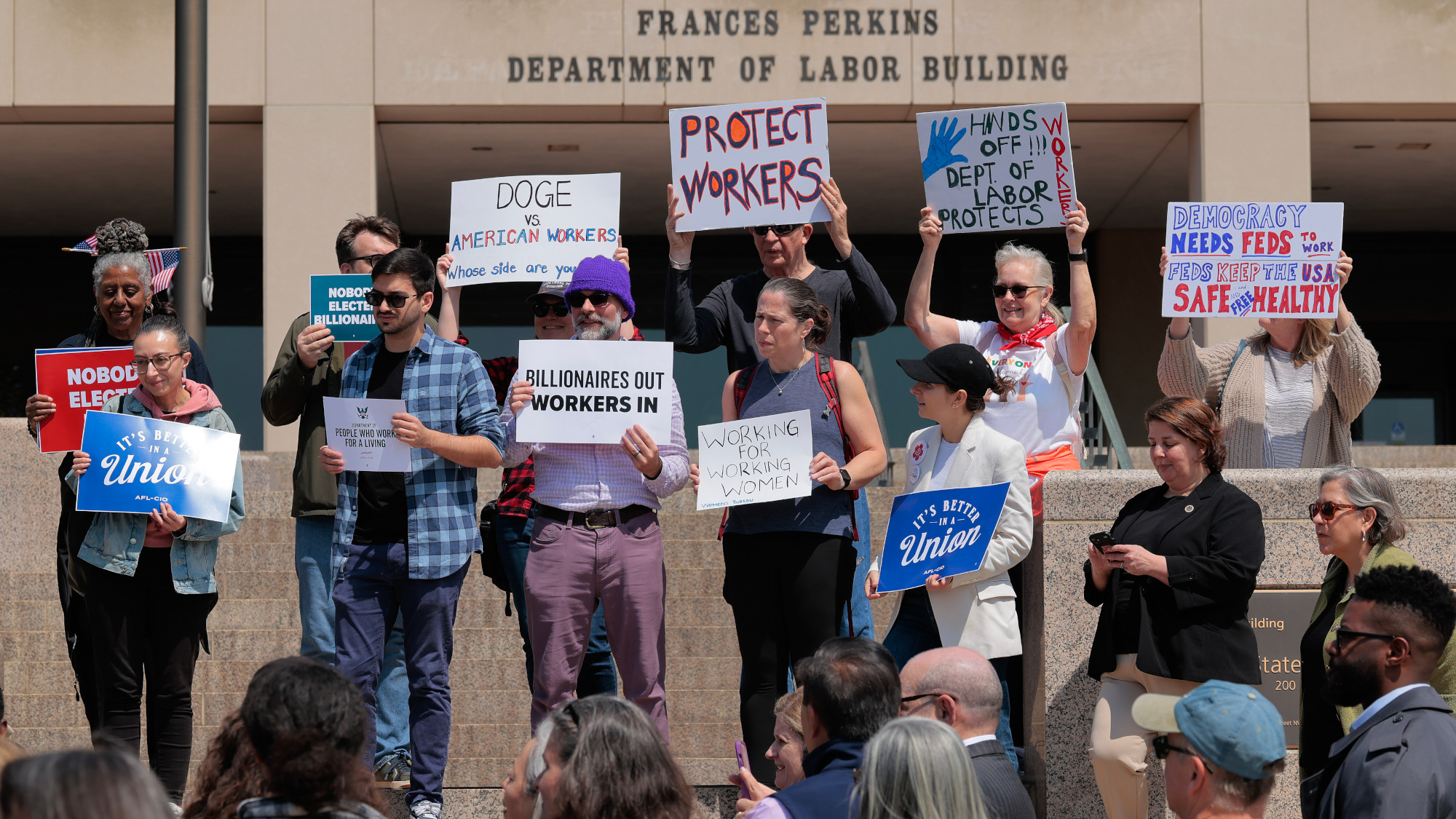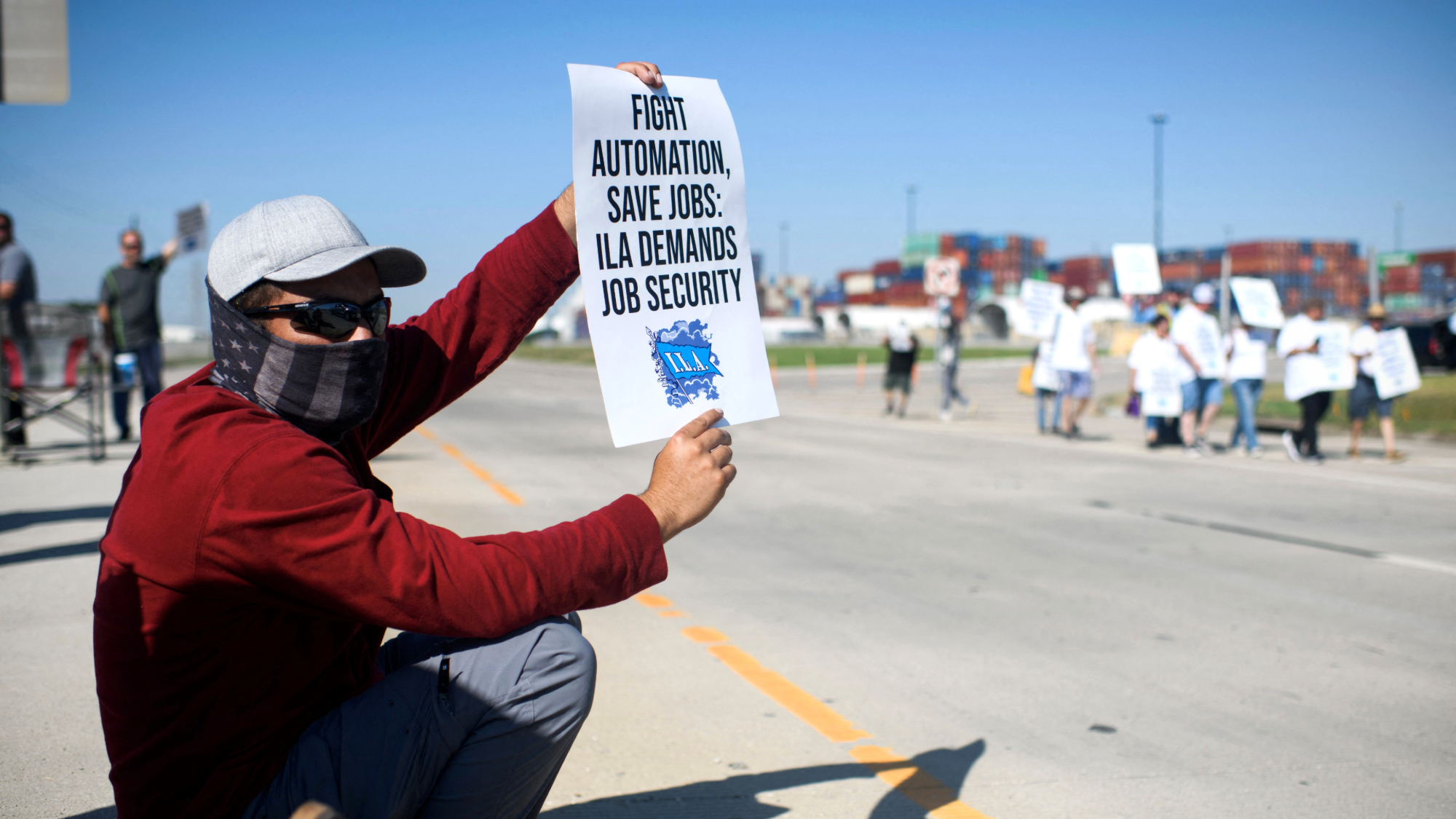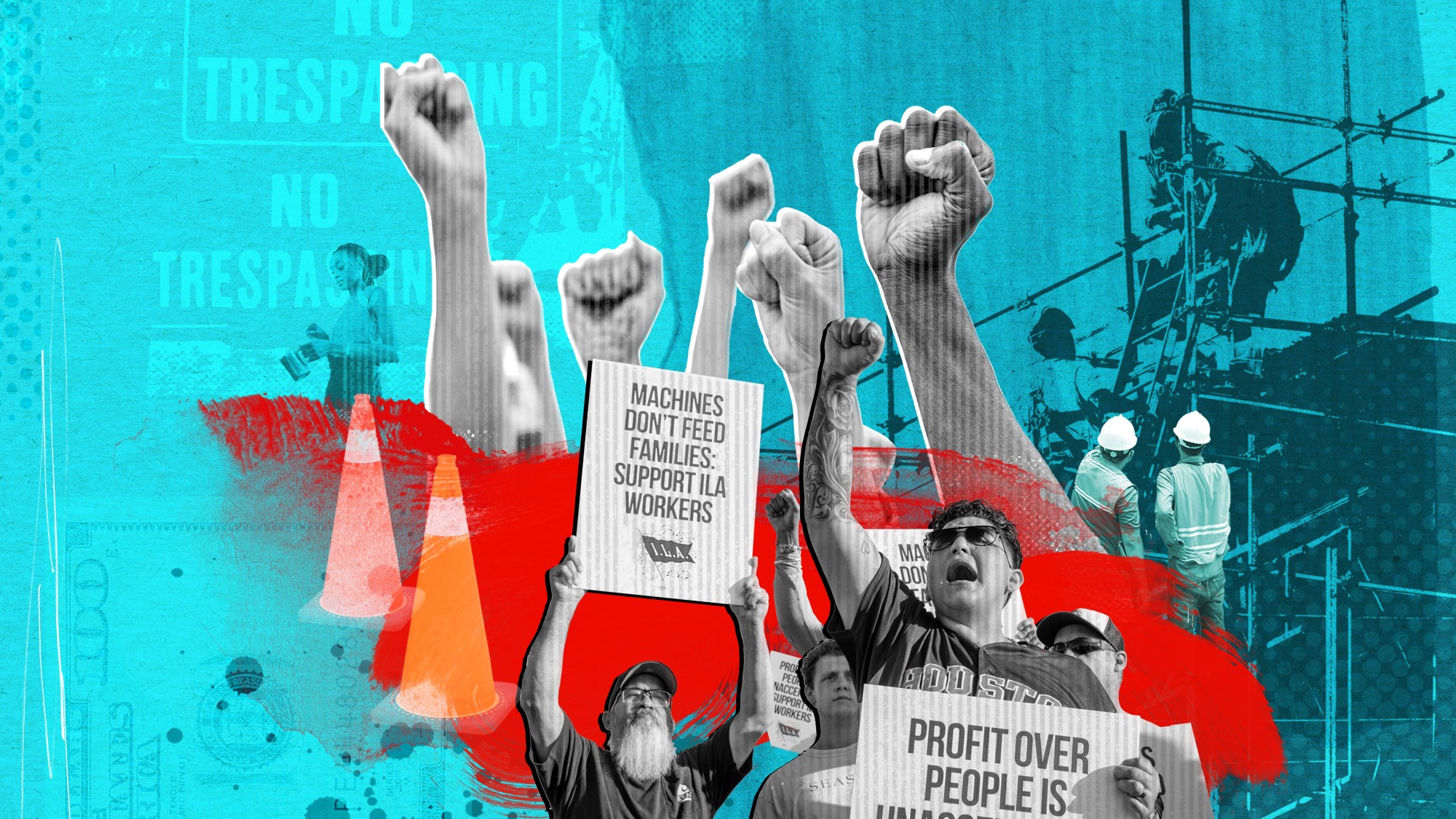Why auto workers are on the brink of striking
As the industry transitions to EVs, union workers ask for a pay raise and a shorter workweek


A free daily email with the biggest news stories of the day – and the best features from TheWeek.com
You are now subscribed
Your newsletter sign-up was successful
Workers at Detroit's "Big Three" automakers may soon hit the picket line. The Detroit Free Press reported that the 150,000 members of the United Auto Workers have "have given union leadership the OK to strike" against General Motors, Ford and Stellantis if an agreement isn't within reach by the end of the current contract, which expires on Sept. 14. "Our goal is not to strike, our goal is to bargain a good contract for our members," said UAW President Shawn Fain.
The union is demanding "a four-day workweek at five-day workweek pay," Marketplace reported. Workers also want a 46% pay raise and restoration of some pension benefits bargained away during the Great Recession — but a shorter workweek, which has raised eyebrows, could help the industry and its workers transition to electric vehicle production. "It's a well known fact that assembling electric vehicles takes fewer person power hours than an internal combustion engine," said Sharon Block, a Harvard Law School professor.
UAW's threatened strike could also affect presidential politics. CNBC reported that the union is withholding its endorsement of President Biden over concerns that its workers will be shortchanged in the EV transition. That's part of a newly "militant" approach under Fain, who became UAW president in the spring. It's time to hold candidates accountable if they want union support, he said. "We can't rely on lip service." Biden, meanwhile, has put out a statement asking "all sides to work together for a fair agreement." Can an agreement be reached?
The Week
Escape your echo chamber. Get the facts behind the news, plus analysis from multiple perspectives.

Sign up for The Week's Free Newsletters
From our morning news briefing to a weekly Good News Newsletter, get the best of The Week delivered directly to your inbox.
From our morning news briefing to a weekly Good News Newsletter, get the best of The Week delivered directly to your inbox.
What's at stake in negotiations?
Fain "is swinging for the fences and beyond," the Detroit News editorialized, with demands that could "return UAW members to their preeminent status among industrial workers" while obtaining a contract that "emphasizes quality of life over quality of work." That's understandable: Detroit carmakers have reported $250 billion in profits over the last 10 years. But "rich times are often short-lived" and Fain has raised the expectations of UAW members. It will be difficult for him to back off the big demands "without appearing to sell out the workers."
"A strike would be rough for all concerned," the Chicago Tribune added. Workers lost $1 billion during a 2019 walkout at GM, while the company reported losing $3.6 billion from the strike. "No one should wish for a repeat of that harmful affair." But any new contract will have to acknowledge that making electric vehicles requires much less "nuts-and-bolts" work than gasoline-powered cars. "There's no way to turn back the clock to the days of large industrial assembly lines where workers spend their careers doing the same job, the same way."
Yes, the UAW's demands are "extremely ambitious," Ellen Ioanes wrote at Vox. "Unions go into negotiations knowing they'll have to compromise on some elements of what they're asking for, so they aim high." In this case, workers are trying to claw back some of the concessions they gave car companies while the industry teetered during the Great Recession — including lower pay for new workers — while setting the stage for the EV transition. That has implications beyond the automotive industry. "The moment is right for labor to try and claw back losses of the past few decades and try to gain protection and benefits for the future."
Could other auto workers follow?
It's not just Detroit workers who might walk out. Jalopnik reported that Canadian workers at the Big Three automakers are also ready to strike. Their contract expires Sept. 18, four days after the U.S. deadline.
A free daily email with the biggest news stories of the day – and the best features from TheWeek.com
If a strike comes in the U.S., it will be expensive, Peter Berg wrote for MSU Today. One analysis predicts that GM, Ford and Stellantis will lose more than $5 billion from a 10-day strike. But UAW has a strike fund that could partially support workers for up to 11 weeks. That means pressure is on for both sides to come up with a deal that workers can accept while moving the industry into its electrified future. That might not be easy. "This contract negotiation is a fight over the future of the auto industry."
Joel Mathis is a writer with 30 years of newspaper and online journalism experience. His work also regularly appears in National Geographic and The Kansas City Star. His awards include best online commentary at the Online News Association and (twice) at the City and Regional Magazine Association.
-
 How the FCC’s ‘equal time’ rule works
How the FCC’s ‘equal time’ rule worksIn the Spotlight The law is at the heart of the Colbert-CBS conflict
-
 What is the endgame in the DHS shutdown?
What is the endgame in the DHS shutdown?Today’s Big Question Democrats want to rein in ICE’s immigration crackdown
-
 ‘Poor time management isn’t just an inconvenience’
‘Poor time management isn’t just an inconvenience’Instant Opinion Opinion, comment and editorials of the day
-
 Ski town strikers fight rising cost of living
Ski town strikers fight rising cost of livingThe Explainer Telluride is the latest ski resort experiencing a patroller strike
-
 What will the US economy look like in 2026?
What will the US economy look like in 2026?Today’s Big Question Wall Street is bullish, but uncertain
-
 Starbucks workers are planning their ‘biggest strike’ ever
Starbucks workers are planning their ‘biggest strike’ everThe Explainer The union said 92% of its members voted to strike
-
 Labor: Federal unions struggle to survive Trump
Labor: Federal unions struggle to survive TrumpFeature Trump moves to strip union rights from federal workers
-
 US port strike averted with tentative labor deal
US port strike averted with tentative labor dealSpeed Read The strike could have shut down major ports from Texas to Maine
-
 Boeing machinists reject deal, continue strike
Boeing machinists reject deal, continue strikeSpeed Read The rejection came the same day Boeing reported a $6.2 billion quarterly loss
-
 The pros and cons of globalization
The pros and cons of globalizationPros and Cons Globalization can promote economic prosperity but also be exploitative
-
 The pros and cons of labor unions
The pros and cons of labor unionsPros and Cons Companies throughout the country continue to push for unionization
